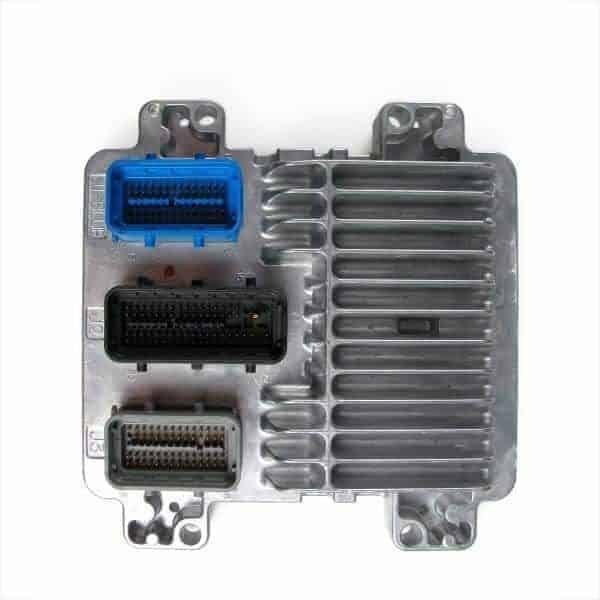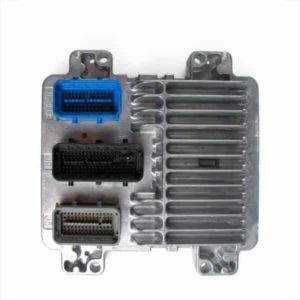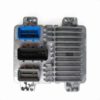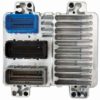Is Your Isuzu Ascender Experiencing Mysterious Electrical Gremlins?
If you’re dealing with frustrating issues like your 2007-2008 Isuzu Ascender stalling for no reason, refusing to start intermittently, or throwing a check engine light with codes that just don’t make sense, the problem might be deeper than a simple sensor. As the master computer for your engine and transmission, a failing Powertrain Control Module (PCM) can cause a cascade of confusing and hard-to-diagnose symptoms. In my 20+ years in the shop, I’ve seen these exact modules cause headaches for both owners and technicians alike.
The Brain of Your Drivetrain: Understanding the PCM’s Role
Think of the PCM as the central command center for your truck. It takes in data from dozens of sensors—oxygen sensors, crank and cam position sensors, throttle position, and more—and uses that information to make thousands of calculations per second. It controls crucial functions like:
- ✔ Fuel injector pulse width (how much fuel to use)
- ✔ Ignition timing (when to fire the spark plugs)
- ✔ Transmission shift points and line pressure
- ✔ Electronic throttle control
- ✔ Emissions system operation
When the PCM’s internal components begin to fail, these critical calculations become corrupted, leading to the poor performance and reliability issues you’re likely experiencing.
Expert Pro Tip: The Heat and Vibration Factor
On the GMT360 platform vehicles like your Ascender, Trailblazer, or Envoy with the 4.2L engine, the PCM is mounted directly to the driver’s side of the engine block. Over years and thousands of miles, the constant exposure to intense engine heat and vibration takes its toll. I’ve personally diagnosed hundreds of these where the microscopic solder joints on the circuit board crack or the main processor itself fails. This often results in intermittent problems that disappear when the engine is cold and reappear once it warms up, making diagnosis a real challenge.
The Direct Solution: A VIN-Programmed PCM
Replacing a PCM used to mean buying the part, having your vehicle towed to a dealership, and paying them hundreds for programming. This module eliminates that hassle and expense. We solve the problem by providing a replacement PCM, part number 19210067, that is professionally programmed specifically for your vehicle before it ever leaves our facility.
Here’s how it works:
- ✔ You purchase the module.
- ✔ You provide us with your vehicle’s 17-digit VIN.
- ✔ We access the official GM database to find the correct, most up-to-date software calibration for your exact vehicle build.
- ✔ We flash the module with this software, making it ready for installation right out of the box.
This process ensures the PCM communicates perfectly with all the other modules in your truck, restoring its original performance and efficiency. While the module is plug-and-play, some vehicles may require a simple security relearn procedure (often a 10-30 minute key cycle process) which can be done in your driveway without any special tools.
Guaranteed Compatibility for Your Vehicle
This PCM is a direct fit for a wide range of GM trucks and SUVs that use part number 19210067 or the interchangeable number 12602010. Please verify your part number or match your vehicle in the list below to ensure proper fitment.
This part will fit these makes and models with these options:
- ✔ 2007-2008 ISUZU ASCENDER – Electronic Control Module; (4.2L, LH engine)
- ✔ 2007-2008 GMC ENVOY – Electronic Control Module; 4.2L (LH engine)
- ✔ 2007-2008 CHEVROLET TRAILBLAZER – Electronic Control Module; (LH engine), 4.2L
- ✔ 2007-2008 SAAB 9-7X – Electronic Control Module; (LH engine), 4.2L / 6 cylinder
- ✔ 2007 BUICK RAINIER – Electronic Control Module; (LH engine), 4.2L
- ✔ 2007 CHEVROLET COLORADO – Electronic Control Module; (RH firewall)
- ✔ 2007 GMC CANYON – Electronic Control Module; (RH firewall)
- ✔ 2007 HUMMER H3 – Electronic Control Module; (RH firewall)
- ✔ 2007 ISUZU I-290 – Electronic Control Module; (RH firewall)
- ✔ 2007 ISUZU I-370 – Electronic Control Module; (RH firewall)
Note: For 2008 models, please ensure your original module has the ID 19210067.



